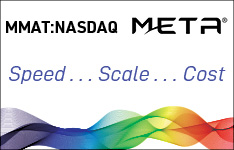Millennials and Gen Z as Homebuyers
Millennials are beginning to dominate homeownership. 51.5% of millennials are homeowners as of this year. This generation increased by 7 million homeowners over the last five years. However, those gains have not been easily won, and millennials continue to come in behind other generations. Young millennials only made up 14% of home sales in 2023.
Baby boomers still dominate the market in terms of purchasing power, and Gen Z has begun to outpace them as well. 30% of the oldest year of Gen Z, who should be about 25, have become homeowners, which is greater than the 28% of millennials who became homeowners at the same age, and 27% of Gen X at that age. Location also plays a part, as Gen Z homebuyers are more mobile, while millennial homebuyers trend towards major cities and job centers. Many Gen Z homebuyers took advantage of low mortgage rates in 2020 to 2021.
Millennials, by contrast, have suffered from poor opportunities and timing, and are just getting into the market in large numbers now. They are facing a number of obstacles in the traditional housing market. For one thing, there simply aren't enough homes available for 72.1 million millennials. Millennials are also contending against inflation, rising rents, and higher borrowing rates. These changes in circumstances stand in contrast to an industry that has remained largely unchanged.
The Mortgage Market
Consumers have several options to finance their home purchase, including conventional mortgages, FHA insured mortgages, and VA guaranteed mortgages. FHA insured loans are provided by approved lenders and insured by the Federal Housing Authority, which can give homebuyers a lower down payment, or compensate for a lower credit score. VA loans, while only available to military, veterans, and military families, are guaranteed by the Department of Veterans Affairs.
In 2022, Wells Fargo, Bank of America, and JP Morgan Chase were the fourth, seventh, and eighth largest mortgage lenders, respectively. Wells Fargo announced at the beginning of this year that it intended to scale back mortgages, but last year saw 143,000 loans at a value of US$79 billion. Bank of America saw 121,000 loans at a value of US$54 billion. JP Morgan Chase saw 115,000 loans at a value of US$73 billion, with an average loan amount of US$631,000. While non-traditional lenders did make gains in 2021, traditional financial institutions won back some ground in 2022.
However, some non-bank lenders did manage to hold on to their advantages. Rocket Mortgage was the top mortgage lender in 2022, with 464,000 loans that generated a value of US$127.6 billion. United Shore Financial Services came up behind with 348,000 loans with a value of US$127.5 billion. In third place was Loan Depot with 156,000 loans with a value of US$53 billion. It seems clear from these results that homebuyers are looking for change in the market.
Beeline: Standing Out From the Crowd
Beeline is disrupting the mortgage industry by providing a new model for consumers. Beeline stands out from the crowd because it has incorporated artificial intelligence into its services. There are a number of features that make it attractive to consumers, which are available through its customer portal. It generates its own leads directly instead of buying from aggregators, it has fully immersive, mobile-friendly and highly converting proprietary POS experience, pull asset, income, bank statements, and payroll that it uses to generate real-time approvals for customers. 95% of these approvals reach closing. The in-house platform takes customers from Clear to Close on titles at the moment, without having to go to land records for 60% of all refinancings. By June 1, the company hopes to improve the AI system so that it is able to answer complex queries and give detailed quotes at all hours.
These features specifically appeal to millennial and Gen Z homebuyers. According to a survey by Fannie Mae, a government-sponsored mortgage company, younger homebuyers, including Gen Z, are more likely to use online and digital tools throughout the mortgage process, including mortgage apps. This represents a significant shift in the industry, given that 62% of Millennials and 30% of Gen Z owned homes in 2022.
The survey found that 58% of younger homebuyers, defined as those under age 35, used online mortgage calculators or apps during the home buying process, compared to just 39% of buyers aged 35 and older. Additionally, 37% of younger buyers applied for a mortgage online, compared to 21% of older buyers. The survey also found that younger buyers were more likely to prefer digital communication and technology-enabled solutions throughout the mortgage process, including e-signatures and mobile apps for tracking the status of their mortgage application.
Ownership and Share Structure
There are 500,000 shares authorized, and 164,404 shares outstanding. Fully diluted shares account for 67.91% of the company's ownership. There are 53,822 series A preferred stock, with 29,987 of these shares outstanding, accounting for 12.38% of the company's ownership. There are 9,426 common stock warrants, which accounts for 3.89% of the company's ownership. The company has taken on a number of financing operations, and raised US$29,135,130.13.
The most significant shareholders in the company are Peter Gonzalez, with 42,627 shares, Nicholas R. Liuzza Jr. with 36,182 shares, Honey Jar Investments Pty Ltd. with 11,683 shares, and Stephen Katz with 9,866 shares, the Nicholas R. Liuzza Jr. Trust with 9,727 shares, El Moto Pty Ltd. with 5,635 shares, Zed Seven Pty Ltd ATF: The Stockwell Family with 5,050 shares, Pacificus Partners, LLC, with 6126 shares, Jessica N. Kennedy with 4,850, and John N. Chandler with 3,195.
Beeline also recently concluded a round of financing. The company has a valuation cap of US$20 million pre-money, which is about $231.17 per share. Upon a change of control, these notes may convert at a 20% discount. The company is offering price protection, which allows investment in the Bridge Round to not be diluted after 15% of the options are vested.
In 2021, Beeline made a total of 1,202 loans, and brought in a total of 6,943 net loan revenues and 961 net title revenues, adding up to a net total of 7904. Its total OPEX was 17,919. The full data from 2022 has yet to be released, but the company made a total of 863 loans, and brought in 6,767 total revenues and 13,799 total OPEX.
The company's budget for 2023 is 1,110 loans, 5,994 net loan revenues, and 1,856 net title revenues. The forecast for 2024 is 2,923 loans, 23,969 net loan revenues, and 5,737 net title revenues for a total of 29,705 total net revenues, and 20,794 OPEX.
Important Disclosures:
- Beeline is a billboard sponsor of Streetwise Reports and pays a monthly SWR sponsorship fee between US$3,000 and US$5,000. In addition, Beeline has a consulting relationship with Street Smart and pays a monthly consulting fee between US$8,000 and US$20,000.
- As of the date of this article, officers and/or employees of Streetwise Reports LLC (including members of their household) own securities of Beeline.
- Amanda Duvall wrote this article for Streetwise Reports LLC and provides services to Streetwise Reports as an employee.
- The article does not constitute investment advice. Each reader is encouraged to consult with his or her individual financial professional. By opening this page, each reader accepts and agrees to Streetwise Reports' terms of use and full legal disclaimer. This article is not a solicitation for investment. Streetwise Reports does not render general or specific investment advice and the information on Streetwise Reports should not be considered a recommendation to buy or sell any security. Streetwise Reports does not endorse or recommend the business, products, services or securities of any company mentioned on Streetwise Reports.
For additional disclosures, please click here.











































